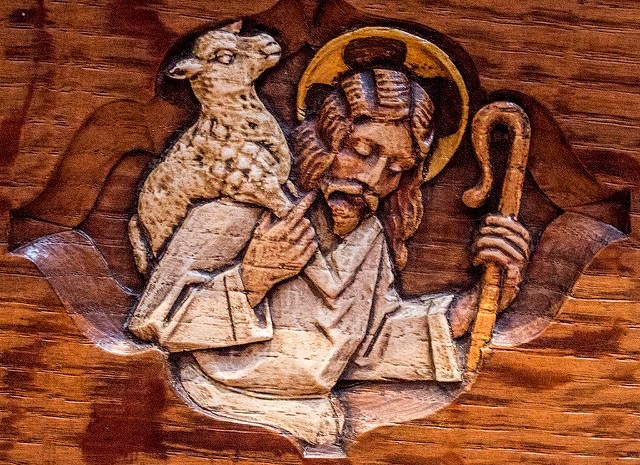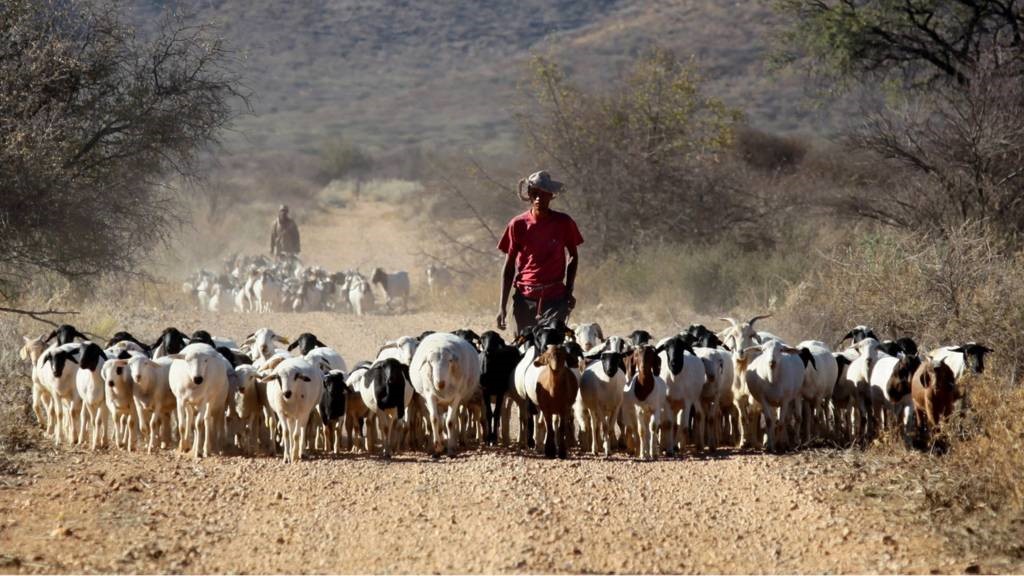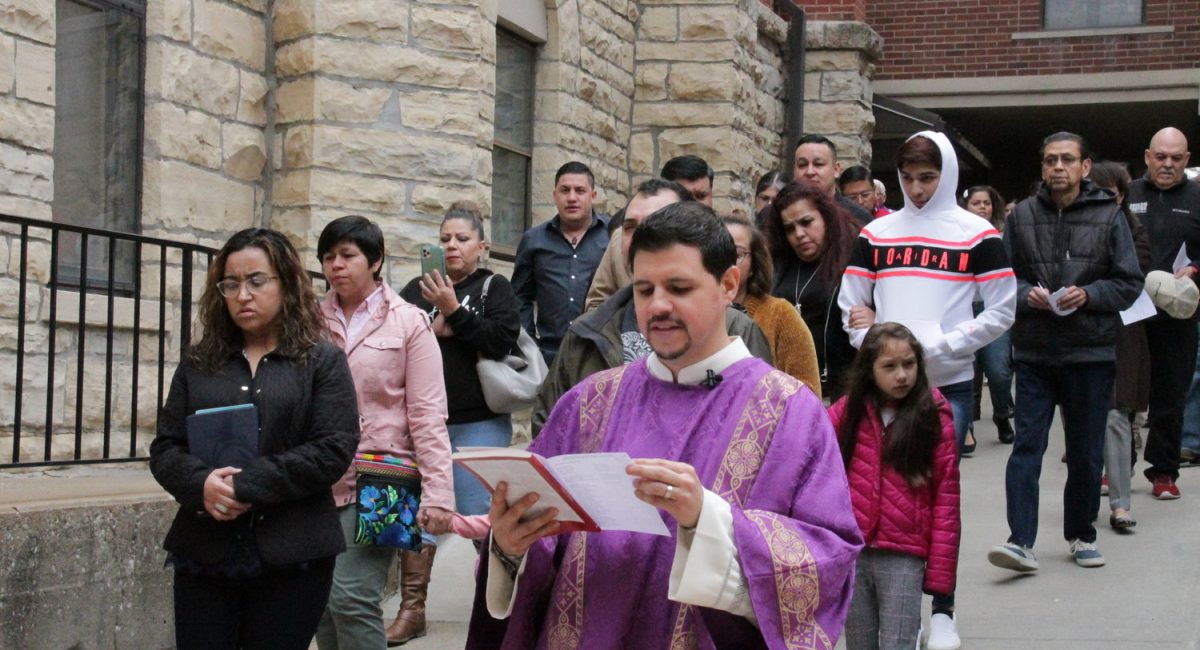CYCLE A | EASTER | WEEK 4
REFLECTION
– By Fr Ugo Ikwuka
Archway, London
A UK government survey asked people in a wide range of jobs how happy they were. Second in the list on an average salary of over £120,000 were the Chief Executives. Guess who was on top of the list – not millionaires, not celebrities but the clergy who earn just 17% of what the Chief Executives earn! Yet, I once asked a boy if he would like to become a priest and his mother cuts in, “No father, I want him to be happy”.
This ‘Good Shepherd’ Sunday, we are invited to reflect on the meaning of God’s call and to pray for vocations to the various ministries in the Church. A pastor explaining his job to Sunday school kids told them that he was like a shepherd and the members of his congregation the sheep. He then asks the children what the shepherd does for the sheep. One child answers, “He fleeces them.” Yes, while shepherds go into the business for the purpose of fleecing, milking and feeding on the sheep, this Sunday’s Psalm (23) proclaims, “The Lord is my shepherd” in recognition that God takes care of his own, not for any selfish gains but primarily for the good of the flock.
The deficiencies of the Old Testament Levitical Priesthood (priests from the tribe of Levi) include loss of efficacy in mediating between God and man as they became self-absorbed; more concerned about their outward appearance and holiness. Lest they be contaminated, they distance themselves from the very people they ought to bring close to God. That was the case in the parable of the Good Samaritan whereby the priest crossed to the other side of the road instead of stopping to help the man beaten up by robbers who lay dying in the pool of his own blood. He walked away because of the belief that contact with such a ‘mess’ will contaminate him.
Furthermore, the role of the priests degenerated to routine cycle of offering animal sacrifices for the atonement of people’s sins which did not bring about the conversion of heart that God desired. In reaction, God swore an oath to re-launch the priesthood, now, in the divine order of Melchizedek (Ps. 110:4) in which He Himself was going to shepherd his people (Ezekiel 34:15-16). This promise came to fulfilment in Jesus who came “that his flock might have life and have it to the full”. Note that Jesus could be priest in this spiritual order, otherwise, he was not from the priestly tribe of Levi but a descendant of David from the kingly line of Judah.

Jesus became a ritual detergent; instead of being ‘contaminated’ by the ‘unclean’, the unclean are made clean on encountering him e.g. the woman with a haemorrhage. As the Good Shepherd, he is contrasted with the ‘career’ (hired) shepherd who moved from flock to flock depending on the conditions of service, and who wouldn’t risk his life for the flock. In danger, he would abandon them and flee for his dear life. The Good Shepherd grows up with the flock and stays with them all his life. He knows every sheep in the flock individually and could tell their personal story.
He attends to their individual needs. He knows the ones likely to lag behind after a long walk and he would carry them on his shoulders. He knows the ones likely to stray and he would keep an eye on them. He knows the pregnant ones that need special care. He would risk his life and fight to defend his flock when they are attacked. He practically lies across the door of the sheepfold at night to ward off attackers. “The sheep hear his voice … and follow because they know his voice… They do not recognise the voice of strangers”. Yes, God is not an abstract concept or idea but has a voice and communicates to us personally, and we are naturally wired to hear His voice for “He made us, we belong to Him, we are his people, the sheep of His flock” (Ps. 100).
Hebrews (4:15) assures us that ours is a shepherd who is able to empathize with our weaknesses because he has been tempted in every way like us. He has walked our walk, even to the point of dying our death. That’s the shepherd we can follow, the voice we can listen to. The voice of the Good Shepherd could be heard today through the scriptures, the teachings of the church, the lives of the saints, the liturgy, and especially through the conscience, the aboriginal vicar of Christ in the soul as St Henry Newman described it.
Millions of voices compete for our attention today; pleasure, fame, money, sex, honour, freedom, titles, approvals, qualifications, etc. Brilliant goods of the world these are, but when we give ourselves to them in an absolute way, they actually rob us of life. That’s why Jesus calls them “robbers”. Other robbers in our time include ‘men of God’ who exploit the flock in God’s name while peddling fear and recrimination, and those who deceptively offer the flock quick fixes; promise of salvation without personal conversion. You only have to say some magical prayer of Jesus being your personal lord and saviour and you are instantly saved.

Other voices that rob us of life today include those that tell us to do it because everyone is doing it, that times have changed, that you should grow up, that in life it is dog eat dog; you either step on someone on your way up, or you are getting stepped on.
Jesus lamented that the harvest is rich but the labourers are few. It is a mistake though to narrow the term “vocation” only to those who feel called to the priesthood or religious life. Every baptised person is called by God to play a specific role in the Christian community and the wider society. Unfortunately, most people decide first on their ‘career’ before considering how they can use their gifts to serve.
If I live according to state and religious rules without playing an active and meaningful part in my community, I am not really a Christian in the proper sense. Thus, many end up praying for other people’s vocation on a day like this. To say this prayer rewardingly involves reflecting on how God is asking me to make a meaningful contribution of myself (not just my money) to the building up of our Christian community.





Good and wonderful